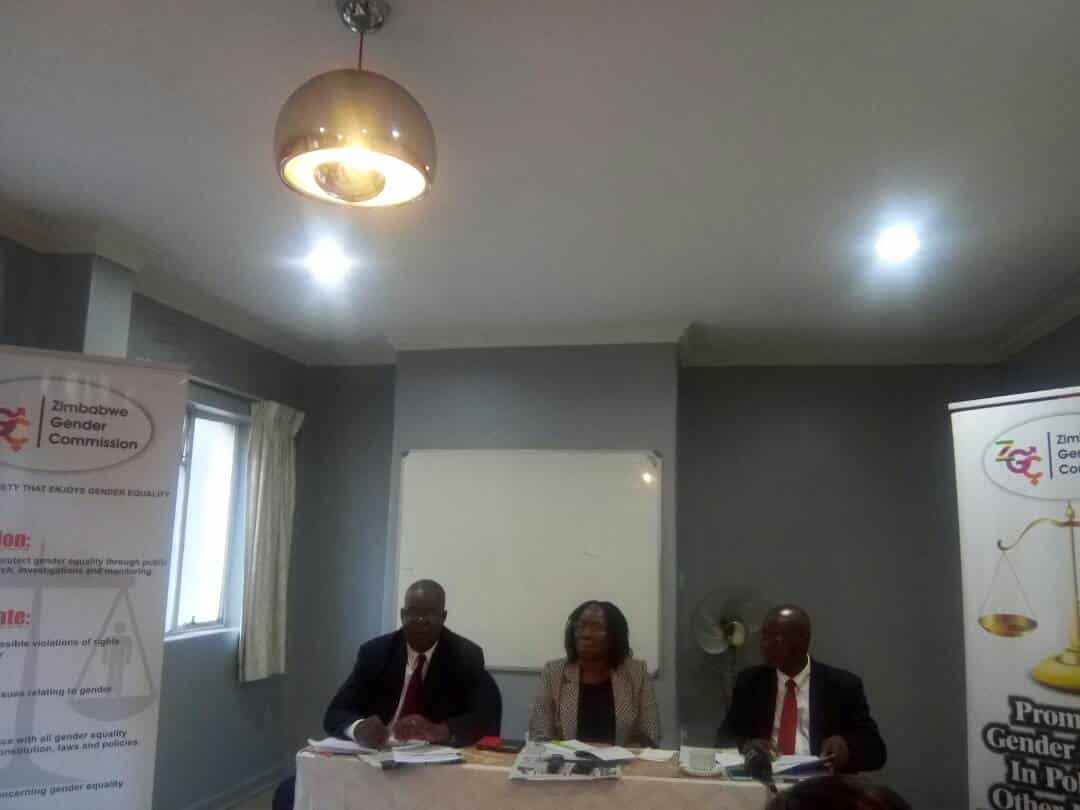By Joyce Mukucha and Patricia Mashiri
The Zimbabwe Gender Commission (ZGC) appealed to the media to be gender-sensitive when reporting during the country’s forthcoming elections.
Magaret Mukahanana- Sangarwe, the Chairperson of ZGC said it was important to engage with members of the media in order to enhance that there was balanced reporting in as much as elections were concerned.
She said it was the press’ role to make women’s voices heard in the political spheres, therefore gender equality must be fundamentally viewed as a human right.
“As the ZGC, we are greatly concerned about the marginalisation of women in the media and the negative portrayal of females in news stories. We urge journalists to report gender sensitively before, during and after the 2018 harmonised elections. It is also our aim to build capacity of journalists to mainstream gender in media reporting during the electoral process.
“Women continue to be marginalised in politics despite that the country adopted an engendered constitution and ratified several international and regional frameworks which promote the equal participation of women in political and decision making processes.” she said.
The results of the recently held ZANU-PF primary elections, where out of 190 National Assembly candidates, only 21 (11%) were women that is negative percent which clearly shows gender discrimination. In a way to achieve a 50-50 gender parity in the forthcoming elections, Ms Sangarwe said it was imperative for the media to take a closer look on conventions which are against the discernment of women.
Ms Sangarwe mentioned that according to the last year’s dialogue, they come to realise that women were reluctant to participate in politics because of negative perceptions thrown upon them by journalists.
“During the ongoing election campaign, the commission urges the media to publicise candidates and their party manifestos regardless of their gender while seeking to treat them equally and impartially. We realise the critical role played by the media in breaking the glass ceiling of gender stereotyping and oppressive patriarchal tendencies that militate the capabilities of women. The media must try not to use inflammatory language against women.”
Victor Nkiwane, the Commissioner at ZGC said there was need of working together between the media and Commission to teach the society about gender issues and break some of the stereotypes which are usually associated with women politicians.
He also indicated that during elections women who come forward to participate are labelled, abused both physically and emotionally and the media can only come up and help readdress the imbalances.
Journalists have been also urged to play a role in identifying issues that encourage politicians to speak about their concerns. In the coverage of politics, the commission appealed that the media desist from associating ‘hard news’ with only men.
According to research on Gender and Media carried out by Gender links 2015 in all SADC countries revealed that most women’s voices are most likely to be heard in the ‘soft’, gender violence 41 percent, children 39 percent, sex and sexuality 41 percent. Women’s voice are least heard in topics such as sports,12 percent, politics 13 percent economics 15 percent and mining 15 percent. These areas include gender equality 43 percent.
